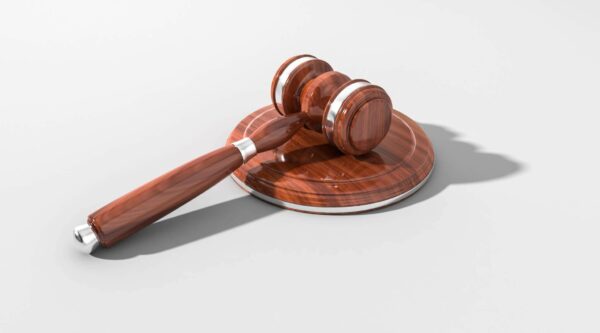Proper practice on seeking permission to appeal (Lisle-Mainwaring v Associated Newspapers Ltd)

This article was first published on Lexis®PSL Dispute Resolution on 10 July 2018.
Dispute Resolution analysis: What is the proper procedure when submitting an application for permission to appeal? Phillip Patterson, a barrister at Hardwicke, considers the Court of Appeal’s judgment in Lisle-Mainwaring v Associated Newspapers Ltd and explains why any informal attempt to seek permission to appeal from the lower court is invalid.
Lisle-Mainwaring v Associated Newspapers Ltd [2018] EWCA Civ 1470
What are the practical implications of the case?
Two points of practical importance can be drawn from this case:
- An application for permission to appeal from the lower court can only properly be made at the handing down of a judgment and with the benefit of submissions both from the appellant and the respondent. If the circumstances in which the judgment is handed down prevent the appellant from so doing (eg the oral handing down of a lengthy and/or complex judgment), the appropriate course of action is to seek to adjourn that part of the handing down hearing to allow consideration of the merits of an appeal. Any informal attempt to seek permission to appeal from the lower court is invalid.
- Useful (albeit brief) analysis by the Court of Appeal of the relationship between standard disclosure and applications for specific disclosure.
What was the background?
The appellant came to national prominence in 2015 as a result of painting her central-London home with broad red and white stripes. The Daily Mail newspaper, published by the respondent, covered the story in some depth and the appellant issued proceedings alleging harassment on the part of the newspaper. As part of those proceedings, the appellant made an application for specific disclosure which was heard by Sir David Eady on 21 March 2018. He reserved judgment, which he then gave orally on 23 March 2018, refusing the application. No attempt was made at the handing down hearing to obtain permission to appeal.
Later that day, however, the appellant unilaterally wrote to the judge by e-mail seeking permission. The respondent was not copied into the e-mail and was unaware that it had been sent. The judge received the e-mail on the final afternoon before his judicial authority expired as a result of his impending retirement. The judge (incorrectly) believed that this required the judge to determine the permission application that day and he granted permission.
Following written submissions from both parties, Sir David reviewed his decision on 10 April 2018. He concluded that he had no authority to grant permission to appeal other than that a hearing, and that his grant of permission was invalid and indicated that the appellant was required to apply to the Court of Appeal if she continued to seek permission to appeal. The appellant sought permission from the Court of Appeal.
What did the court decide?
The correct practice for any party is to seek permission at the hearing at which judgment is handed down. Where judgment is reserved for a written judgment to be produced, there is ample time for both parties to make submissions on the question of permission to appeal. Where, as here, judgment is reserved for an oral judgment to be handed down, a party seeking permission to appeal must either make it at that hearing, or request that part of the hearing is adjourned in order to allow the application for permission (after taking advice on the merits of such an appeal) to be made subsequently.
Coulson LJ stated that no element of the usual or proper practice on seeking permission to appeal was followed by the appellant in this case. Permission was not sought at the hearing at which the judgment was handed down, no request had been made to adjourn that part of the hearing and when the application was eventually made, it was made without giving notice to the respondent. This deprived the learned judge of the benefit of any submissions from the respondent on the question of permission to appeal. Coulson LJ stressed that the importance of such submissions should not be understated.
The Court of Appeal upheld the learned judge’s own analysis that his decision granting permission was invalid and thus proceeded to consider afresh the application for permission. Having done so, the Court of Appeal refused permission.
What comment did the court make on specific disclosure?
Although the learned judge had initially expressed the view when granting permission that there was a lack of authority on the relationship between standard and specific disclosure, the Court of Appeal described the position as ‘fairly straight-forward’. Coulson LJ analysed the position as follows (at para [34]):
- where there is an order for standard disclosure, each party has to list those documents which arise in the three sub-categories of CPR 31.6(b)—whether or not a document falls into these sub-paragraphs must be judged against the statements of case, and not by reference to other matters
- After receipt of the other side’s list, a party may conclude that it wishes to seek specific disclosure of particular documents or classes of documents. If so, an application is made under CPR 31.12—the court has a discretion as to whether or not to grant such an order.
- The application for specific disclosure will usually arise because the applicant believes that the other party has not given adequate disclosure the first time around. But that is not inevitable—sometimes, there may be documents (or a particular class of documents) which the applicant seeks by way of specific disclosure, regardless of whether or not they should have been disclosed by way of standard disclosure.
The Court of Appeal concluded that the appellant’s true complaint in the present case was that the respondent had failed properly to comply with the order for standard disclosure and she had failed in the course of the application to make out the grounds for specific disclosure.
As a result, and coupled with the fact that the application for specific disclosure was found to have been motivated by tactical considerations, rather than a genuine concern about missing documents, the court concluded that the learned judge had not erred in dismissing the original application.
Permission to appeal was refused.
Phillip Patterson has a wide-ranging commercial and insolvency practice with experience of high value and complex disputes. He has particular expertise in technical company law issues, which makes him an obvious choice for claims involving allegations of mismanagement and breach of duty as well as shareholder disputes. He handles a wide variety of banking and financial services LexisNexisdisputes where his postgraduate qualification in banking law gives him a decided edge. A significant proportion of Mr Patterson’s current and recent work concerns corporate and personal insolvency, a field in which he is fast becoming a go-to junior for a range of matters. He also has experience of consumer contract issues, professional negligence claims and a variety of private client disputes.
Interviewed by Kate Beaumont.
Disclaimer
This content is provided free of charge for information purposes only. It does not constitute legal advice and should not be relied on as such. No responsibility for the accuracy and/or correctness of the information and commentary set out in the article, or for any consequences of relying on it, is assumed or accepted by any member of Chambers or by Chambers as a whole.
Contact
Please note that we do not give legal advice on individual cases which may relate to this content other than by way of formal instruction of a member of Gatehouse Chambers. However, if you have any other queries about this content please contact:


